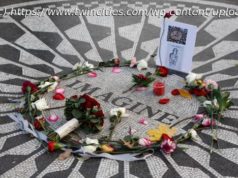As L.A. is spoiled for choices in music festivals, some longstanding free options are forced to make changes.
Echo Park Rising began six years ago as a hail-mary pass to salvage another free music festival. After the popular Sunset Junction fest in Silver Lake collapsed at the last minute in 2011, the concert promoter Spaceland Presents cobbled together a scrappy, free festival of mostly local acts.
It proved popular and durable. Large crowds are expected at this weekend’s edition of Echo Park Rising, spread around clubs such as the Echo and inside the bars and restaurants along the main drags of Echo Park.
But it comes at a strange time for free music in Los Angeles. Pricey destination events such as Coachella, FYF Fest and the newly added Arroyo Seco Weekend in Pasadena mean major for-profit festivals dominate the SoCal landscape, locking up dozens upon dozens of acts for months due to radius clauses that prevent bands from playing gigs too close together.
In their wake — and seizing upon fans’ diversifying desires for fest experiences — boutique-like weekend getaways or genre-focused events now dot the landscape. Just this summer, Spaceland announced two new ones of its own — the goth-oriented Cloak & Dagger and the more generalist Spaceland Block Party.
Throw in the standard litany of club nights and other area shows, and there’s never been more live music to see in Southern California — especially if you can pay for it.
And now the festival boom may even be putting smaller, more community-focused events at risk. This year, some longtime nonproft and free fests have gone on hiatus or shifted their scope considerably, scaling back amid increased competition. This at a time when many neighborhoods popular with musicians and music fans face gentrification and the need for low-cost, local entertainment.
In a city now spoiled for live music choices, free may have its costs as well.
There’s a certain irony to Echo Park Rising these days, as the once working-class neighborhood is increasingly out of reach for all but the wealthiest newcomers. But it’s still a center of life for clubbing and bar-hopping in L.A., and this weekend’s festival will showcase hundreds of sets — some international headliners like Dungen, some local legends like Alice Bag, and scores of other just-starting-out combos and DJs — across venues along Sunset Boulevard and Glendale Boulevard.
In that sense, Echo Park Rising is one of the lucky ones.
In March, the Make Music Pasadena festival announced a hiatus that may prove permanent. The event, co-produced by the Old Pasadena Management District and the Playhouse District Assn., sported headliners last year such as the Mowgli’s, James Supercave and Atlas Genius and brought in an estimated crowd of around 50,000.
The promoters were unusually frank about the reasons it shut down.
In a statement earlier this year, organizers blamed “a proliferation of local and national music festivals” that “made it a challenge to secure both talent and local media attention within a limited budget.” The organizations estimated a $150,000 budget gap for this year’s events, and couldn’ t find enough sponsors or public and private support to throw a comparable show to last year’s.
“The ability to garner enough media attention and sponsorships and recruiting talent were all obstacles to producing an event to the same degree, ” said Brian Wallace, executive director of the Playhouse District Assn. “This combination has been problematic for other fests as well.”
Rising competition meant that fees for nationally touring artists have crept upward, along with the incumbent security costs of producing large public events. Fans benefit from the huge array of options, he said, but free neighborhood fests can have a tough time standing out.
“In the past, attendees would be aware of maybe one or two events a week, ” Wallace added. “Now there’s so much more competition for people’s time and attention. It’s a good economy and people are asking for a lot — the competition’s tighter and the demands on sponsors are great.”
Still, Wallace said that the launch of Goldenvoice-produced Arroyo Seco Weekend, which hosted Make Music Pasadena vets the Mowgli’s, wasn’ t a factor in their decision. “Our discussions were mutually supportive, ” he said. “It was our intention to build on both [events] .”
The organizers now have a smaller event, Intersection, planned for Aug. 26, featuring significant local headliners like Kan Wakan and the Dead Ships.
But it’s a much different show aimed at a primarily neighborhood crowd. Wallace holds out hope that a reconfigured Make Music Pasadena can someday return, but he admits their goals have shifted to highlighting local-level artists and venues.
“There’s still an appetite for it, ” he said. “But the Make Music Pasadena model faced new challenges on the financial end. As a nonprofit, you can only bite off so much.”
Similarly, the even more popular Eagle Rock Music Festival has reconfigured its scale. The Oct. 7 event, produced by the Center for the Arts Eagle Rock, used to attract over 120,000 fans (making it, by most estimations, the city’s biggest free music festival) and drew Coachella-caliber acts such as Flying Lotus and La Santa Cecilia.
But it hit similar snags in 2015 and had to go dark for the year, returning as a smaller event estimated to draw about 70,000 fans with a stronger focus on jazz, soul and Latin music. This year’s headliners include a live remix project focused on the music of Dexter Story, soul producer Te’ Amir and the reggae group the Delirians.
Promoter Matthew Himes — who also works on Echo Park Rising and the Levitt Pavilions’ summertime showcases — said that the fest is finding new footing in the panoply of live music options. As northeast L.A. further gentrifies and there are more demands for national, hipster-friendly touring talent, a more-modest festival might be a natural fit for the families and music fans who live in the surrounding communities.
“The [fest’s] role is to serve the public, and it doesn’ t matter what your background is for anyone to enjoy it, ” he said. “Big fests can offer bigger guarantees, but the bands that play here want to give back to the neighborhood. It’s a beautiful thing that we can have both.”
The SoCal-area Levitt Pavilions, in Pasadena and Westlake, have also been wrestling with how to meet the music needs of shifting neighborhoods, while acknowledging the competitive climate for booking talent.
Since reopening in 2007 in the MacArthur Park band shell, the Westlake Levitt in particular has tried to serve the huge, longstanding Latino populations of the area while drawing diverse crowds from around the city. Their upcoming remaining summer slate brings acts ranging from the all-female Mariachi Divas, the Afro-Latin combo Quitapenas, noise-rockers L.A. Witch and the DJ Peanut Butter Wolf spinning a history of hip-hop.
The shows remain resolutely family friendly and accessible, and organizers say their distinct nonprofit mission doesn’ t overlap too much with the increasingly cutthroat world of mainstream talent-buying.
“The value is in inclusivity for people of all financial means and backgrounds, ” said Sharon Yazowski, the executive director of the Levitt Foundation, which oversees the programming at Levitt sites across the country.
Home
United States
USA — Music In a festival-heavy market, Echo Park Rising has thrived while its peers...






